 Petzlover
Petzlover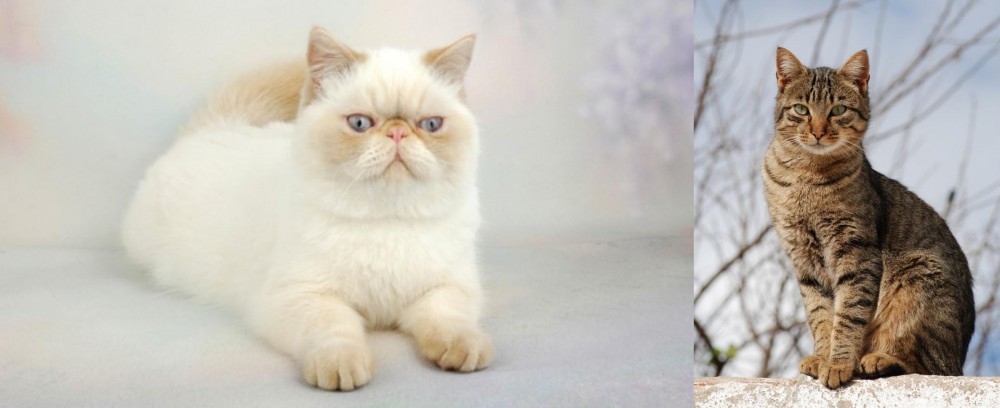 Exotic Shorthair is originated from United States but Tabby is originated from United Kingdom. Both Exotic Shorthair and Tabby are having almost same weight. Exotic Shorthair may live 3 years less than Tabby. Both Exotic Shorthair and Tabby has same litter size. Exotic Shorthair requires Low Maintenance. But Tabby requires Moderate Maintenance
Exotic Shorthair is originated from United States but Tabby is originated from United Kingdom. Both Exotic Shorthair and Tabby are having almost same weight. Exotic Shorthair may live 3 years less than Tabby. Both Exotic Shorthair and Tabby has same litter size. Exotic Shorthair requires Low Maintenance. But Tabby requires Moderate Maintenance
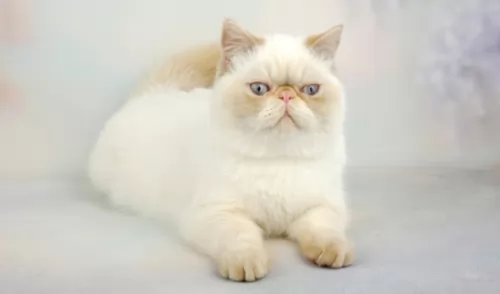 The Exotic Shorthair cat is such a sweet-faced cat that it is often referred to as the ‘lazy man’s Persian. This is because the face is also flat and pushed in like the Persian cat.
The Exotic Shorthair cat is such a sweet-faced cat that it is often referred to as the ‘lazy man’s Persian. This is because the face is also flat and pushed in like the Persian cat.
The Exotic Shorthair was in fact developed as a short-haired version of the Persian. It was in the 1950s that the Persian was used to mate with other breeds such as the Burmese.
The crossbreed gained recognition but some American Shorthair breeders produced a new breed standard that would disqualify American Shorthairs that showed any signs of crossbreeding.
It was in 1966 that the Cat Fanciers Association recognized the cat as a new breed and under the name Exotic Shorthair.
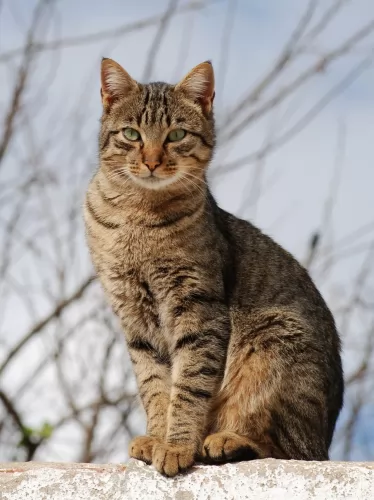 The Tabby isn’t a cat breed but rather a certain cat pattern. So the Tabby has lots of different coat colors and patterns and the cat comes in different sizes.
The Tabby isn’t a cat breed but rather a certain cat pattern. So the Tabby has lots of different coat colors and patterns and the cat comes in different sizes.
You get the mackerel Tabby, the classic Tabby, the spotty Tabby and the ticked Tabby. The Tabby is a domestic cat. It is thought that today’s Tabby’s originated from the African wild cat because the markings are so similar.
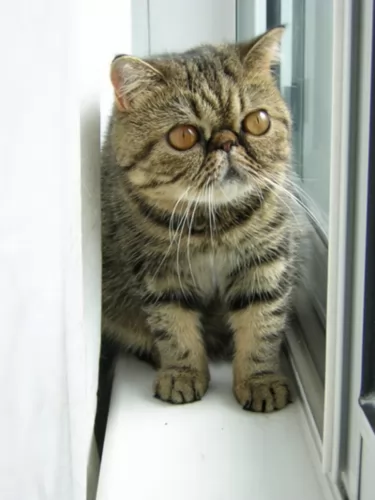 Developed through crosses between Persians and American Shorthairs as well as other cat breeds, the Exotic Shorthair looks like the Persian but he has a short coat.
Developed through crosses between Persians and American Shorthairs as well as other cat breeds, the Exotic Shorthair looks like the Persian but he has a short coat.
The coat is found in the same colors as the Persian cat – patterns and solid colors, ranging from chinchilla silver to tabby, tortoiseshell, black and white and bicolor. The eyes are large and round, the ears small and round and the tail fairly short and thick.
The Exotic Shorthair is a sweet, gentle, calm cat but a bit livelier than the Persian. They’re lively, friendly, and playful, but are also cats that like to sit in your lap and be stroked.
They get on well with children and other pets, being a loyal friend to the entire family. He quietly communicates with his human family with a soft voice. He is also quite adaptable to living conditions so long as his human family provides him with lots of attention.
He won’t want to be left for long periods of time on his own so he won’t suit living in a home where he is left alone all day.
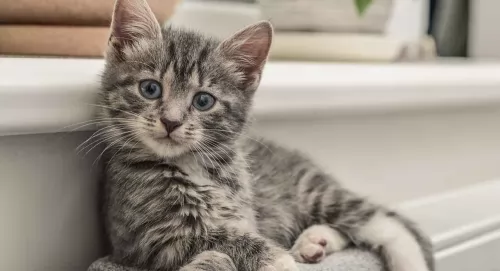 The Tabby is any domestic cat. They’ve got a distinctive 'M' shaped marking on their forehead.
The Tabby is any domestic cat. They’ve got a distinctive 'M' shaped marking on their forehead.
The Tabby cat isn’t a breed of cat but actually a coat type and in fact, there are quite a few cat breeds with the Tabby pattern.
Tabby is a color pattern in other words and it means you will find stripes, spots, and whorls of color. Tabby cats can range in size because of the different breeds. They can be medium to large and weight between 3 and 7kg.
The eye and ear shape will also vary according to the different breeds as well as the thickness of the tail.
Your Tabby is a friendly, social cat. He makes an excellent pet and companion. The orange and ginger tabbies are more feisty and strong-willed. These cats cat can be any personality really and you might have an aloof cat but you could also have a highly social, vocal Tabby.
Most times you will get an active, playful, friendly cat that will love the company of his human family.
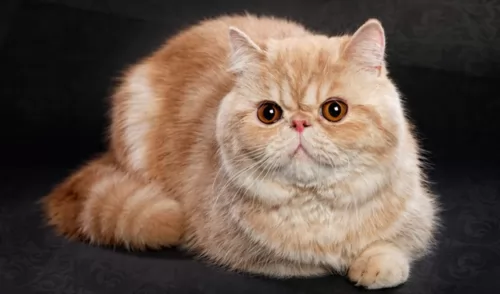 Your Exotic Shorthair is a loving cat and for those who prefer, it is a cat that is livelier than the Persian. While the Exotic Shorthair also has a mellow personality, because of its shorthair ancestors, it's more active.
Your Exotic Shorthair is a loving cat and for those who prefer, it is a cat that is livelier than the Persian. While the Exotic Shorthair also has a mellow personality, because of its shorthair ancestors, it's more active.
This Exotic cat can live to be 15, 16, or 17 if you care for him well and that means you have 15 years to share with a most wonderful feline companion.
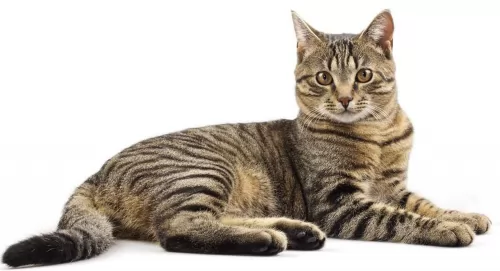 When you bring a Tabby cat into your home, you can't tell what personality he will have. A lot depends on the lifestyle you provide him with.
When you bring a Tabby cat into your home, you can't tell what personality he will have. A lot depends on the lifestyle you provide him with.
Some Tabby cats are social and friendly while others are more shy. One thing is sure, they all thrive on the love and attention of their human families. This popular cat is guaranteed to make you a most wonderful pet and companion.
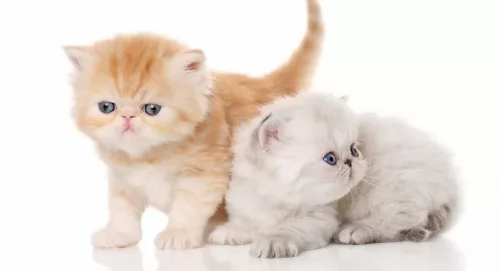 With the Exotic Shorthair, some of the diseases are genetic while others can be encouraged by poor diet and lifestyle.
With the Exotic Shorthair, some of the diseases are genetic while others can be encouraged by poor diet and lifestyle.
Obesity for instance is a major disease of cats and it contributes to many serious illnesses in cats. Excess weight shortens your cat’s life and contributes to arthritis and diabetes. The extra weight puts a strain on the cat's joints. Shedding just a little bit of weight can result in improved mobility.
Dental disease is a common chronic problem in pets. Make sure to check inside your cat’s mouth from time to time as serious dental problems can cause pain and interfere with the health of your cat’s important organs such as heart and kidneys.
All kinds of parasites can invade your Exotic Shorthair's body, internally and externally – worms, fleas, and ticks - and cause your pet a tremendous amount of pain and discomfort.
Brachycephalic Syndrome is a respiratory distress syndrome and it mostly affects what is known as brachycephalic cats – those cat with snub faces like the Exotic Shorthair.
The flattened features of the face make it that there is less space for the tissue to grow. The soft area at the back of the roof of the mouth hangs into the airway, obstructing it, and they can’t breathe normally. Sometimes the cats will require surgery to allow for more regular breathing.
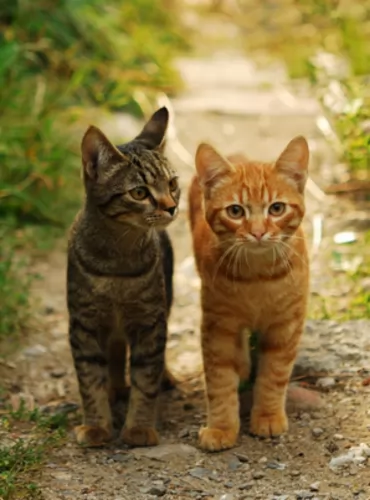 Many cats can develop liver and kidney troubles as they get older so it’s important to visit a vet regularly in order to make sure they are in good health.
Many cats can develop liver and kidney troubles as they get older so it’s important to visit a vet regularly in order to make sure they are in good health.
Most domesticated tabby cats live for 12 to 15 years and this means you can enjoy many years of good friendship from your Tabby.
The liver is an important organ with a host of functions. We know it plays an important role in removing toxic substances from the blood. Because this organ works to rid the body of so many different substances, it can become damaged.
Liver disease results in inflammation, which is known as hepatitis. If left, it can lead to loss of function because of scar tissue. Luckily, liver disease in cats can be treated and managed,
Age, certain diseases and certain breeds of cats are more susceptible to liver disease. Obesity too, can contribute to liver disease. The signs of liver disease are weight loss, increased thirst, vomiting, drooling, jaundice and loss of appetite.
If your cat is diagnosed with liver disease, speak to your vet about a special diet for your cat.
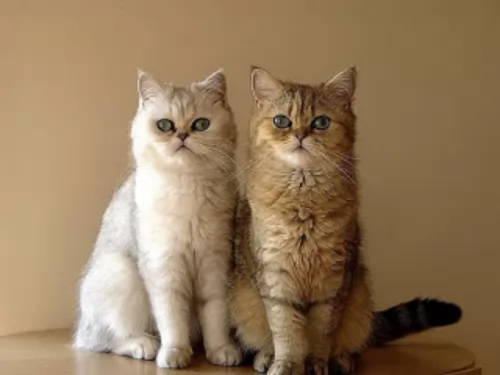 It is important to understand the type of foods available to your pet and how often and how much to feed him.
It is important to understand the type of foods available to your pet and how often and how much to feed him.
Most cats prefer to eat several small meals a day as opposed to a couple of large ones. Make feed times interesting and provide food puzzles to have your cat ‘prey’ for food.
Always read and understand the labels on the cat food packaging and be sure to always feed your Exotic Shorthair with the very best food there is and to follow the portion guides.
If you’re in any doubt or your cat doesn’t want to eat his food, try something else or speak to your vet about how to be sure your cat is getting fed the best food there is.
Make sure to have your kitten vaccinated as required. Also, when you take your kitten in to be vaccinated, the vet will also perform a check-up to make sure your kitten is healthy as these cats are susceptible to bacterial and viral infections.
Your cat has a short, low maintenance coat. A brush once a week can get rid of loose hairs and you and your cat will both enjoy the therapeutic bonding between the two of you.
Check your cat’s inner ears for wax and debris as well as for signs of any infection, and if you don’t want to do that, professional cat groomers can do it for you.
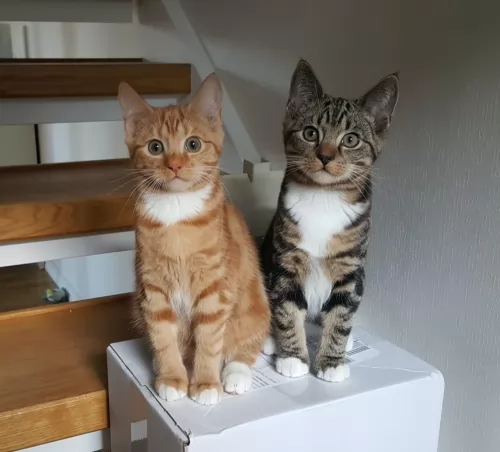 When your cat is a Tabby, he could have short or long fur, and a weekly brushing will be necessary to remove dead hairs and dust from the coat.
When your cat is a Tabby, he could have short or long fur, and a weekly brushing will be necessary to remove dead hairs and dust from the coat.
While you brush your cat, feel for any irregularities such as lumps or cuts. A lump should be examined by the vet.
As already mentioned, good food is key to good health, and as your cat is a carnivore, he will require meat. There are many excellent cat food manufacturers who produce cat food with all the nutrients your feline friend requires.
If your pet needs to be transported anywhere, such as to the vet, make sure he can be carried safely by putting him in a cat carrier box.